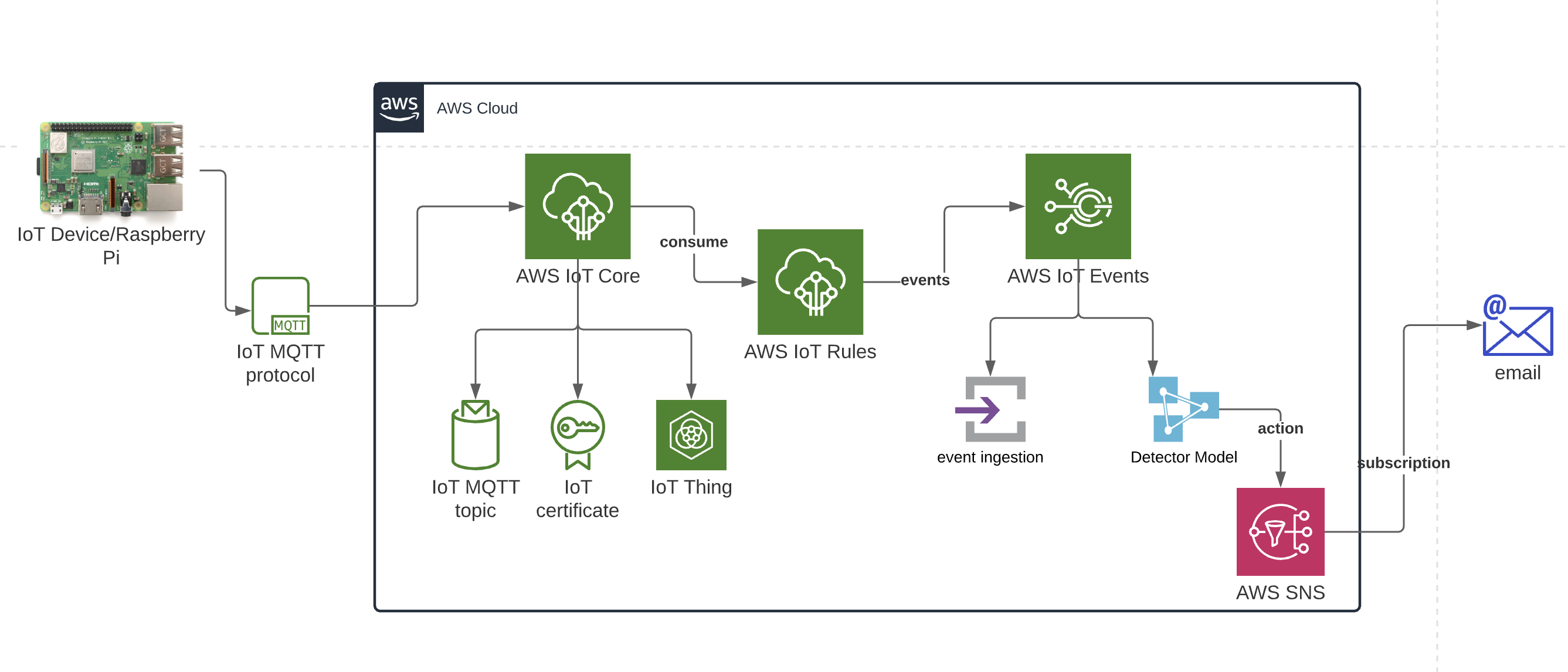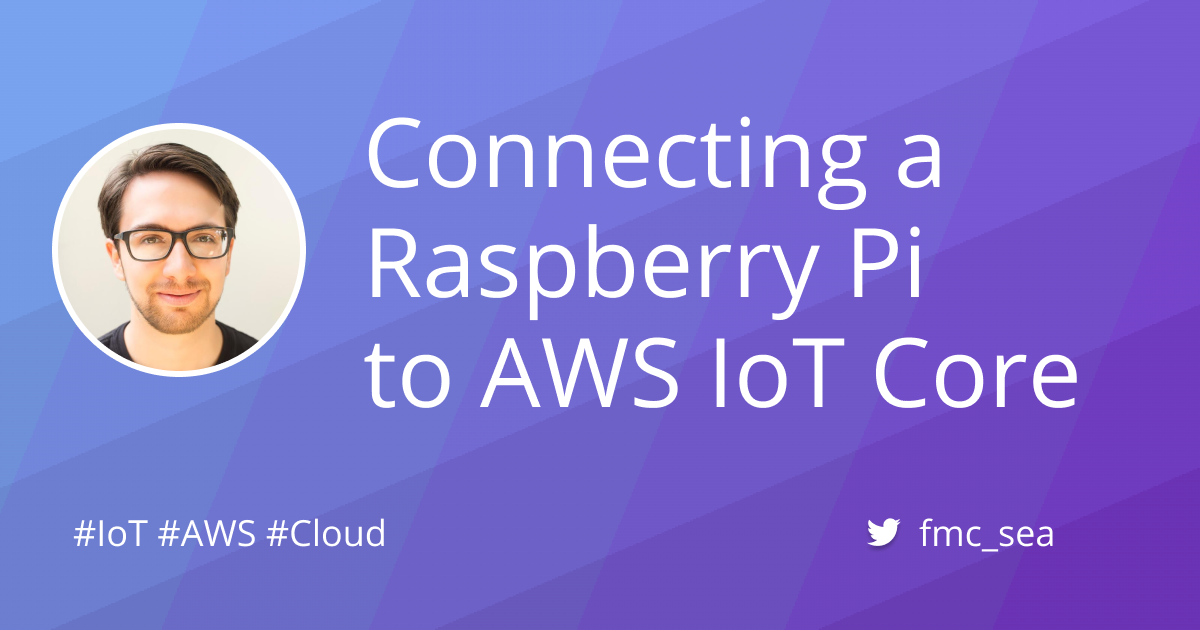In today's interconnected world, securely connecting remote IoT devices through a Virtual Private Cloud (VPC) on AWS using Raspberry Pi has become essential for businesses and individuals alike. This process ensures that sensitive data remains protected while enabling seamless communication between devices.
As IoT technology continues to evolve, more devices are integrated into networks, increasing the need for robust security measures. By leveraging AWS's capabilities, users can create a secure environment for their IoT devices, ensuring data privacy and protection from cyber threats.
This article will delve into the intricacies of securely connecting remote IoT devices through a VPC on AWS, focusing on Raspberry Pi as the primary device. We'll cover key steps, best practices, and essential considerations to help you achieve a secure and efficient setup.
Read also:Svetlana Khodchenkova Feet A Comprehensive Look Into The Iconic Moment
Understanding the Basics of IoT and AWS VPC
Before diving into the technical aspects of securely connecting remote IoT devices, it's crucial to understand the basics of IoT and AWS VPC. IoT refers to the network of physical devices embedded with sensors, software, and connectivity, enabling them to exchange data and perform tasks autonomously.
AWS VPC (Virtual Private Cloud) is a service that allows users to create an isolated network environment within the AWS cloud. This environment can host various resources, including IoT devices, ensuring they communicate securely and efficiently.
Why Use Raspberry Pi for IoT Projects?
Raspberry Pi has become a popular choice for IoT projects due to its affordability, versatility, and ease of use. It offers a powerful platform for developers to experiment with IoT applications, making it an ideal device for securely connecting remote IoT devices through a VPC on AWS.
Setting Up Raspberry Pi for IoT
The first step in securely connecting remote IoT devices through a VPC on AWS is setting up your Raspberry Pi. This involves installing the necessary software and configuring the device for optimal performance.
Key Steps for Setting Up Raspberry Pi
- Install Raspberry Pi OS on your device
- Update the operating system and install required packages
- Configure Wi-Fi and network settings
- Enable SSH for remote access
Creating a VPC on AWS
Once your Raspberry Pi is set up, the next step is creating a VPC on AWS. This involves configuring the network settings and setting up security groups to ensure secure communication between devices.
Steps to Create a VPC on AWS
- Log in to your AWS Management Console
- Navigate to the VPC Dashboard and select "Create VPC"
- Define the IP address range and other network settings
- Set up subnets and route tables for your VPC
Securing IoT Devices in a VPC
Securing IoT devices within a VPC is critical to protect against unauthorized access and potential cyber threats. Implementing strong security measures ensures that your data remains safe and your devices function optimally.
Read also:Marina Visconti A Journey Through Time And Influence
Best Practices for Securing IoT Devices
- Use strong authentication mechanisms for device access
- Regularly update firmware and software to address vulnerabilities
- Implement encryption for data transmission and storage
- Monitor network activity for suspicious behavior
Connecting Raspberry Pi to AWS VPC
Connecting your Raspberry Pi to the AWS VPC involves configuring network settings and ensuring secure communication between devices. This process ensures that your IoT devices can communicate seamlessly within the VPC environment.
Steps to Connect Raspberry Pi to AWS VPC
- Configure the network interface on Raspberry Pi
- Set up port forwarding and NAT rules
- Test the connection to ensure proper functionality
Managing IoT Devices on AWS
Effectively managing IoT devices on AWS requires a strategic approach to ensure optimal performance and security. Utilizing AWS services such as IoT Core and IoT Device Management simplifies the process of monitoring and controlling your devices.
Key AWS Services for IoT Management
- AWS IoT Core for device communication and data processing
- AWS IoT Device Management for device provisioning and monitoring
- AWS Lambda for automating tasks and workflows
Downloading Data from IoT Devices
Downloading data from IoT devices securely is essential for maintaining data integrity and ensuring compliance with privacy regulations. Implementing secure protocols and encryption ensures that your data remains protected during transmission.
Best Practices for Secure Data Download
- Use HTTPS or SFTP for secure data transfer
- Implement access controls to restrict unauthorized downloads
- Regularly back up data to prevent loss
Monitoring and Maintaining IoT Devices
Continuous monitoring and maintenance of IoT devices are crucial for ensuring their optimal performance and security. Regularly updating software, monitoring network activity, and addressing vulnerabilities help maintain a secure environment.
Case Studies and Real-World Applications
Examining real-world applications of securely connecting remote IoT devices through a VPC on AWS provides valuable insights into the effectiveness of this approach. Case studies highlight the benefits and challenges of implementing such solutions in various industries.
Examples of Successful Implementations
- Smart agriculture systems for optimizing crop yields
- Industrial IoT solutions for improving manufacturing efficiency
- Smart home automation for enhancing user convenience
Conclusion and Call to Action
In conclusion, securely connecting remote IoT devices through a VPC on AWS using Raspberry Pi offers a robust solution for ensuring data privacy and protection. By following the steps outlined in this guide and implementing best practices, you can create a secure and efficient environment for your IoT devices.
We invite you to share your thoughts and experiences in the comments section below. For further reading, explore our other articles on IoT, AWS, and cybersecurity. Together, let's build a safer and more connected world!
Table of Contents
- Understanding the Basics of IoT and AWS VPC
- Setting Up Raspberry Pi for IoT
- Creating a VPC on AWS
- Securing IoT Devices in a VPC
- Connecting Raspberry Pi to AWS VPC
- Managing IoT Devices on AWS
- Downloading Data from IoT Devices
- Monitoring and Maintaining IoT Devices
- Case Studies and Real-World Applications
- Conclusion and Call to Action
For further reading, refer to authoritative sources such as the AWS IoT Core documentation and Raspberry Pi official documentation.

